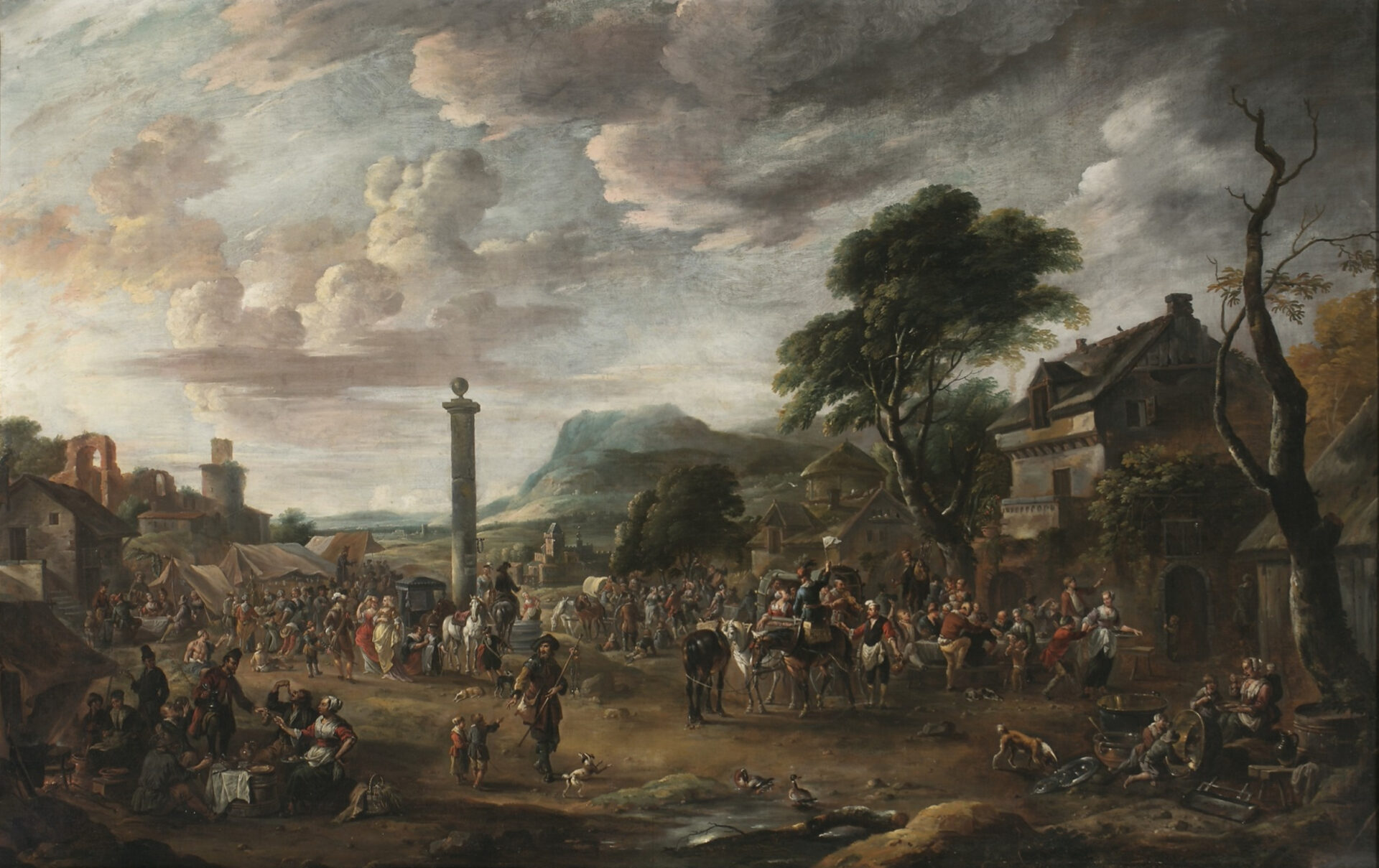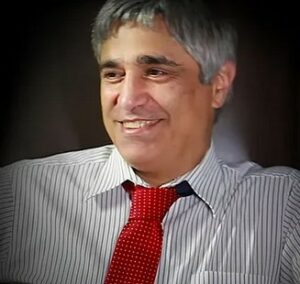There I was, sitting at the doorstep of my great-aunt Concetta’s house. It was the summer of 1983, and I’d gone backpacking and train-riding from Milan in the north to the mountaintop town of Tiriolo in the south, where my maternal grandfather came from. I had met my great aunt, sort of, once before. She had flown to the United States in 1976 to visit her brother Pietro, whom she had not seen in 56 years. We all tried our best to welcome her, but she was a bit surprised and disappointed to discover that except for my grandparents, nobody spoke Italian: not their six children and their spouses, and none of us 19 grandchildren. She had planned to stay for two months, but she cut the visit short and returned to Italy.
By 1983, I did speak Italian, and we were having our first conversation. Aunt Concetta told me that she didn’t like life in America because we had no freedom. That comment baffled me because, like everyone else my age, I believed that America was the land of the free and the home of the brave. But she pulled me up short. “Your grandmother,” she said, “is afraid to walk down the main street at night.”
I had to admit she had a point there. No old lady in Tiriolo needed to be afraid to walk about at night, because that’s what everybody did. They were all either cousins or fellow townsmen – paesani, the Italians say, meaning that they came from the same paese, and enjoyed a common life.
Aunt Concetta was a sharp old bird; and my grandfather, who left school when he was eight and never returned, had plenty of brains and then some. That little conversation, more than anything I have read about political life, has put an indelible mark on my thinking about freedom. I have long rejected any view that reduces liberty to the results of a constitutional mechanism, or that identifies liberty with suffrage, or that defines liberty as a negative, as what the government may not tell you that you may not do.
I don’t have the space here to broach, to develop, and to justify a definition of liberty, but I think I can venture a suggestion as to gauging the degree of real freedom that a nation, or perhaps your town or your street, enjoys. It is the degree and the character of spontaneous, unencumbered, and undirected action on the street.
Imagine a town–call it Stepford. No law prohibits the people of Stepford from taking an evening stroll along the streets. But nobody does it. Why not? There is, they believe, nothing along the streets to do. They feel, therefore, that they do not belong there. It is a self-fulfilling unease. As long as they feel that way, there never will be anything for them to do together out of doors. And yet that is not the whole of their problem, not by far.
For the people of Stepford have also lost the capacity for doing nothing together on their own. To be sure, they do plenty of nothing, after a manner of speaking, in their living rooms, as they take in entertainment fed to them by their providers, or rather they permit plenty of nothing to be done to them. When they are not thus being fed, they grow irritable. They must be at work. Not that they typically value their work according to the beauty and goodness of what they produce. Work is valued for its own sake, or rather as a sign of your superiority to those who do not work. In Stepford, everyone has forgotten how to do nothing, as children used to do: the blessed nothing that is full of receptivity and calm, and that is at the heart of the merry activity of play.
I do not mean that there are no sports in Stepford. There is no play, but there are sports, for the lucky or unlucky few who are good enough to make the Stepford teams. Stepford adults have commandeered the old childhood games and turned them into Stepford resume-building, Stepford scholarship-pursuing, Stepford body-building, and Stepford busy-making. Girls were once happily free of this sort of pressure, but Stepford egalitarianism and Stepford feminism have done away with that freedom. I have before my eyes a photograph from the old Soviet Union, of thousands of teenage boys marching in one of the big cities. They all have boxing gloves on, and they are stripped to the waist. There’s not as much fat on them as would be padding for a lizard. The difference between Stepford and that unknown Russian city of unfreedom is that the Russian boys are physically fit, and most of the Stepford boys–because spots on any one team in a monstrously large school district are necessarily few–are not.
But who are these I see on the streets of Stepford? Surely they testify to liberty, they of ambiguous sex but unambiguous slogans, they with their courting of grotesquerie in body and dress! It is not so. Let us consider a town in the Wild West, when cowboys too long on the trail and too much in the sun come to town for a good time, with shouts none too clean and pistols firing into the air. Their rudeness crowds out everyone else. To the extent that such an outbreak is possible, to that same extent do people retreat, and again we find ourselves in self-confirming futility. The question is not whether there is crime in Stepford, but whether you can depend upon ordinary standards of public decency, day after day, from before dawn till long after the sun has set. So it is that the people of Stepford, both those that oppose the indecency and confusion and those who support it, largely shy away from such casual public displays, except, perhaps, when it is sanctioned by an official parade, and then, like clockwork, the supporters carry their little children to it, to inject their brains with the generally approved madness. But, as I say, the people mostly keep out of it. You may flaunt your political approval of obscene language shouted in the public square; and yet every evening finds you in your Stepford enclave, where you will not hear the shouting you approve.
In any case, there is little variety on the Stepford streets. One of the great things about doing nothing is that there are a thousand ways to do it; it is therefore the precise opposite, in liberty, opportunity, and human creativity, to what the people of Stepford have come to take for granted as work. You can do nothing by playing gin with a friend on a public bench. You can do nothing by reading a book while lying on your back in the grass, using the book as its own shade against the sun. You can do nothing together, arm in arm in arm in arm, singing a fight song just for the fun of it. You can do nothing with a broomstick and a tennis ball and the wall of a vacant building. You can do nothing while riding a bicycle. You can do nothing while sauntering over to the fire station to chat with the fire chief. You can do nothing at the barber’s. You can do nothing at the café. Little girls can do nothing while jumping rope. Boys can do nothing with a fishing pole and worms. Some people do nothing with a kite. Doing nothing is usually a time for laughter and the freedom of an expansive spirit. The workplace by contrast is cramped and harried, and people grumble a lot.
So, are the people of your town free? Is it Tiriolo or Stepford? Take videos of the main street in the late afternoon in September, after school has started, for twenty consecutive days. These, I expect, will speak for themselves.
Image credit: “Busy market square of a village in the mountains” by Anton Goubau via Wikimedia





4 comments
Ricketson
I’ve heard others talk about the lack of freedom in North America relative to Europe, for instance this video comparing London, Ontario to Amsterdam.
https://www.youtube.com/watch?v=oHlpmxLTxpw
One concrete feature they focus on is the US over-reliance on automobiles — another symbol of freedom that constrains us and isolates us in many different ways.
Martin
Great video! My daughter briefly attended a school in Enschede, Netherlands (near the German border). I was surprised to see traffic signals that not only stopped all cars for pedestrians to cross, but had an additional program to permit only bicycles to pass through an intersection.
Martin
https://www.youtube.com/watch?v=fiznpGdVsiY
Brian
A few years ago a lunch spot in my town’s nearly abandoned downtown wanted to put some tables out on the sidewalk, and were told, oh no, that would be against code, you can’t possibly do that. I mean, people wouldn’t be able to walk around these tables! Never mind that there is literally zero pedestrian traffic, on account of the storefronts being 90% vacant.
So of course they didn’t. I wonder what would have happened if they had just gone ahead and done it anyway.
But that’s not the American way anymore. Seems like there was a healthy respect for a distant and powerless government, and as that government became more local and more powerful, that respect has remained, to the point where it’s not healthy at all, but massively destructive.
Comments are closed.